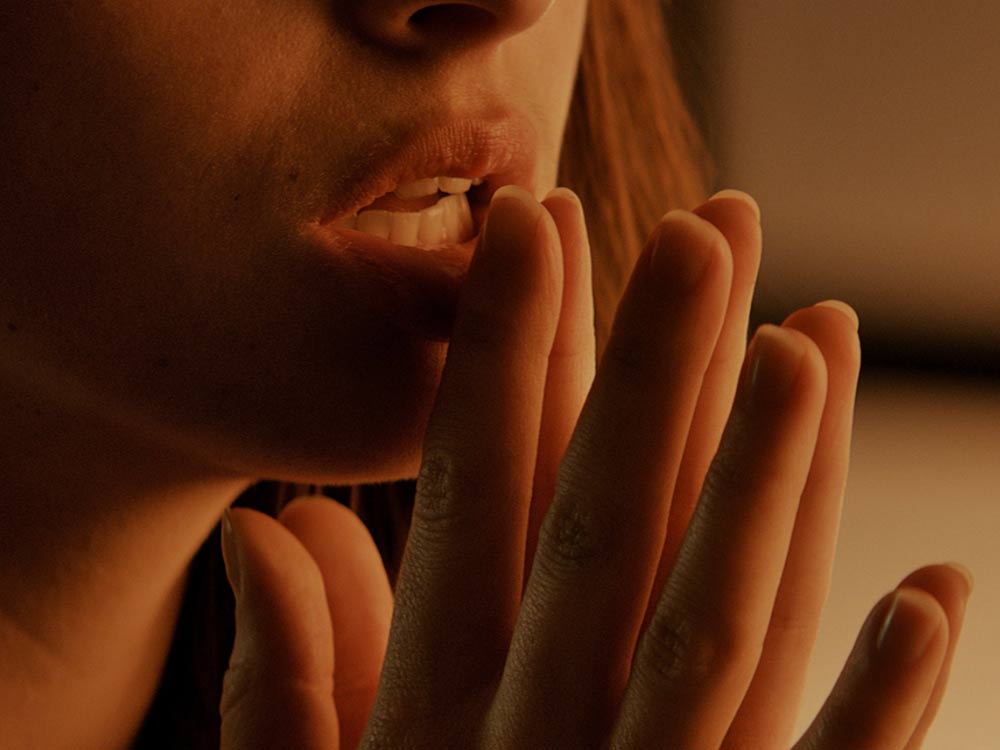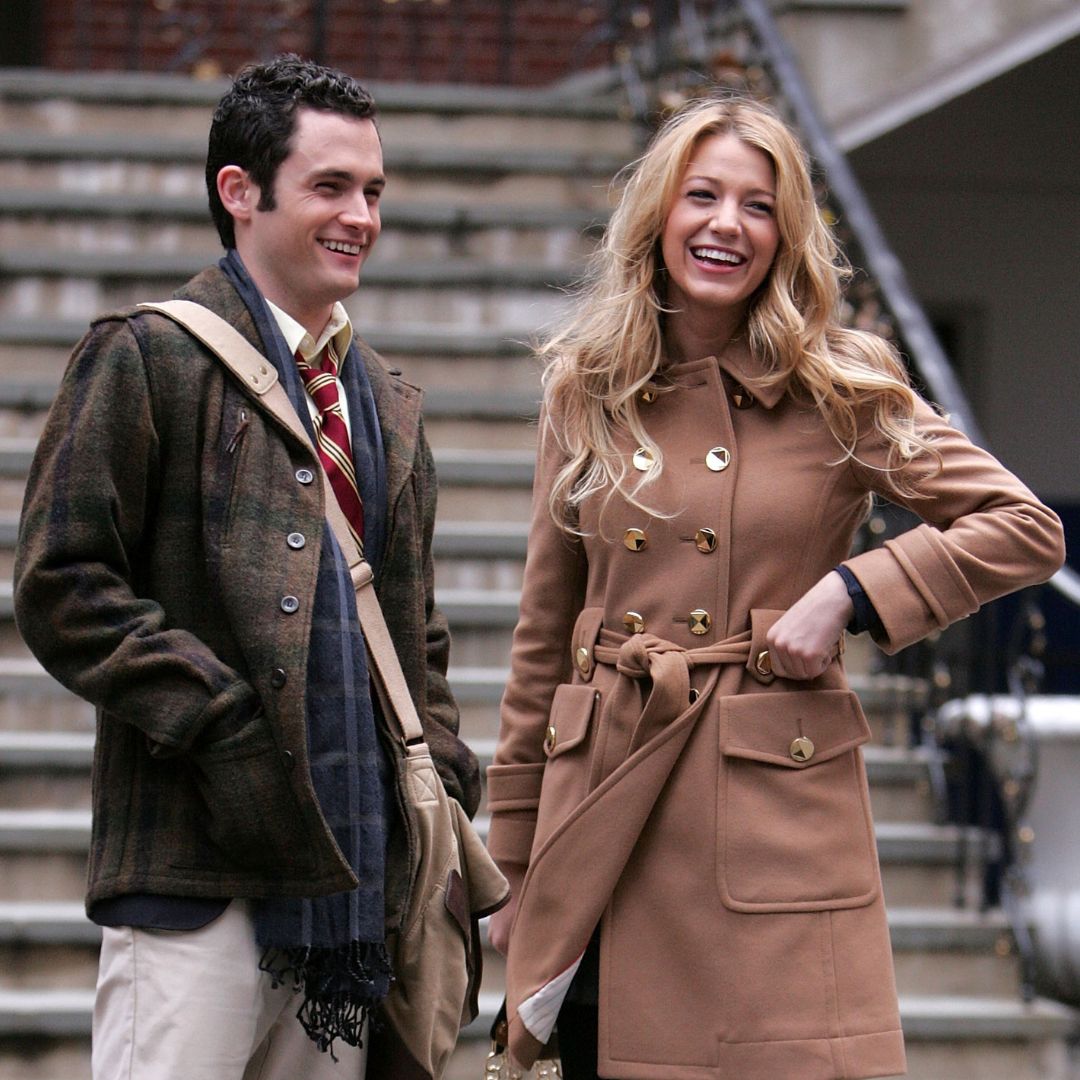What It Feels Like To Be Asexual In A Sex-Obsessed World
In a world obsessed with sex, how does anyone admit they’re just not interested? Now, new social networks and websites are allowing asexual people to finally come out

In a world obsessed with sex, how does anyone admit they’re just not interested? Now, new social networks and websites are allowing asexual people to finally come out
‘I’m asexual,’ said my friend Kate* as she paused to polish off the remnants of her sauvignon blanc. It was unnerving seeing her so visibly uncomfortable; this 28-year-old quietly self-assured woman I’d met through work years previously. She went on to tell me that the hot Italian man she’d recently been seeing had been an experiment of sorts, her chance to confirm once and for all that she didn’t feel sexual attraction. Not towards him, not towards anyone.
Research suggests that one per cent of the global population is asexual. That’s 70 million people who have no interest in the physical aspect of relationships, yet asexuality is still largely misunderstood. ‘The most common misconception is that I simply have a low libido,’ explained Kate when I admitted that I was struggling to understand the concept of a life without sex that wasn’t connected to religious or health issues. ‘I just don’t have a libido at all. It’s not that I find sex repulsive, I’ve just never enjoyed it and I find it mind-numbingly boring and repetitive.’
Sexologist Anthony Bogaert, a professor at Brock University in Ontario and author of Understanding Asexuality, offers this definition: ‘Broadly speaking, asexuality applies to anyone who has an enduring lack of sexual attraction towards others. Some may have a level of sexual interest that’s not connected to other people, so they may still masturbate. Others don’t have any sexual inclinations whatsoever.’
Bogaert considers asexuality a matter of sexual orientation: ‘If people have inclinations towards the opposite sex, they’re heterosexual; if they’re attracted to the same sex, they’re homosexual; and if they’ve inclinations towards both, they’re bisexual. Asexuality, then, is the missing orientation - those who lack inclinations to both sexes.’ There are different types of ‘aces’, with asexuals being heteroromantic (romantically attracted to the opposite sex); homoromantic (to the same sex); biromantic (to both sexes); panromantic (to both sexes and transsexuals); or aromantic (experiencing little or no romantic attraction to anyone).
For Kate, a PR executive with elfin good looks and a weakness for 50s dresses, art galleries and margaritas, there is no objection to someone potentially sharing her life, just not her bed. Imagine a Match.com profile with the disclaimer ‘No sex required’ and you’ll get an idea of how tough dating as an asexual can be. Kate blames a lack of proper sex education at school for her struggle to come to terms with her asexuality. ‘I think it would have saved me years of confusion. I knew I wasn’t attracted to women, so I thought I must be attracted to men. There never seemed to be another option.’
It was when she stumbled across an article about the Asexual Visibility and Education Network (AVEN) – the world’s largest online asexual community – that she realised she wasn’t alone. The site was set up in the US in 2001 by David Jay to share his experiences and to create a public dialogue on asexuality. It now has a global membership of more than 80,000, and Jay has been working along with other activists to promote a greater understanding of asexuality as a sexual orientation.
Marie Claire Newsletter
Celebrity news, beauty, fashion advice, and fascinating features, delivered straight to your inbox!
Thirteen years on, there are a number of asexual dating and social networks, including Acebook, Asexualitic, Asexual Pals and UK-based Platonic Partners, which boasts 6,000 members, aged 18 to 80. Log on and the vibe is refreshingly relaxed. Strip away the coy sexual innuendo and it somehow feels more real than other dating sites. Profiles are to the point: ‘I’m looking for a partner for life and adventure’, and Platonic Partners attempts to facilitate these goals through events such as wine and cheese supper clubs and cinema nights.
More often than not, though, asexuals find it easier to meet and date non-asexuals, as is the case with 23-year-old student Jenni Goodchild, from Bristol. ‘My mum doesn’t understand how I can be asexual and also in a relationship, but my boyfriend has a low libido, so not having sex isn’t an issue,’ she says. Jenni believes a lack of understanding about asexuality leads to the poor treatment of many asexual women. ‘I know plenty of asexuals who have had their hormones checked because there’s this idea that not being interested in sex is something that needs to be fixed.’
‘Five or six years ago, many in the medical profession considered asexuality a sexual disorder, much like erectile dysfunction or even a reaction to childhood sexual abuse, neither of which are the case,’ adds sexologist Bogaert. ‘Yet a number of studies suggest there’s a biological predisposition towards asexuality. One indicates that asexual people have a tendency towards left-handedness that is similar to other sexual minorities. Handedness is determined before birth and is an important marker of prenatal development. So, prenatal factors seem to affect asexual people in a similar way to how they affect other sexual orientations.’
Although they don’t have sex, Jenni and her boyfriend occasionally engage in foreplay. ‘I get pleasure from keeping him happy, but it’s not the same kind of pleasure he experiences. We’re currently experimenting with a few options, such as sex outside the relationship, if he feels the need, but it’s an ongoing thing that we constantly renegotiate.’ Though Jenni initially worried about how her asexuality would affect her relationships, her lack of sexual desire was never an issue for her and she hopes that speaking openly about her experiences will encourage other women to come out. ‘Through my awareness work, I get emails from teenagers saying they are relieved to know there are other people out there like them. Being a teenager is tricky enough, and having confirmation that you’re not “broken”, just different, is incredibly helpful.’
Heteroromantic Lisa Smith, a 31-year old author of young-adult fiction from Buckinghamshire, has encountered similar prejudice. ‘The biggest problem I’ve had is via dating sites. A lot of men don’t believe asexuality exists and I get no end of messages calling me “frigid” or saying I just “haven’t met the right man yet”. Some of the emails are incredibly vicious. I had one that said, “You have a face like a bag of smashed crabs, so it’s no loss.”’
When Lisa told her parents two years ago that she was asexual, they suggested she seek the advice of a psychosexual therapist. ‘She told me, “If you hate sex and you’re OK with that, then you don’t have a problem. It’s only an issue if you want to enjoy sex, but don’t.” She was pivotal in me getting past this feeling I’ve had since I was 15 that I was somehow damaged.’
Lisa has had three relationships, but admits to taking no pleasure in her sexual encounters. Finding intercourse painful, she visited her GP for tests to rule out a physical disorder. Like Kate, Lisa attributes poor sex education for creating a culture of fear around sex. ‘STDs, pregnancy, UTIs: all we were taught were the horror stories, so I always ensured protection was used and that I was on the pill, but the whole thing felt like such a hassle that I got no benefit from, just repulsion and soreness. My most recent relationship was the last straw, really. He was perfect and I was attracted to him, but I still found sex incredibly embarrassing and stressful. I never told him because I thought he’d take it as a personal insult.’
Having tried dating via Acebook and Platonic Partners, Lisa hopes to soon see the emergence of asexual bars and clubs, admitting she would love a relationship. ‘I want companionship, a hand to hold, a shoulder to cry on, someone to celebrate the good things with… everything apart from the sex. I suppose I understand why people struggle with this concept. All creatures supposedly exist to continue the species, but I don’t want kids or sex. I’m essentially a biological dead end.’
In a society saturated by sex, Lisa, like Jenni, finds it hard to engage with modern culture, and admits to being drawn to movies and literature such as The Hunger Games, and music aimed at a younger age group, to avoid any sexual references. ‘I’m sure some people find the likes of Nicki Minaj in Anaconda sexually liberating, but I think it’s just sad. These artists should be selling their music, not making soft porn.’
Does this hypersexualisation of society make asexuality seem more of an anomaly than it actually is? Activists such as AVEN’s David Jay and prolific female asexual campaigner Julie Sondra Decker, author of The Invisible Orientation, think so.
‘Asexuals are told all the time that they have a hormonal or psychological disorder,’ says 36-year-old Julie from Tampa, Florida. ‘But you aren’t diagnosed as asexual any more than you’re diagnosed as straight. There’s also an assumption that asexuality is just another word for abstinence.’ Describing herself as aromantic, Julie was 15 when she realised she was asexual. ‘There was no asexual community at the time, but I knew sex was interesting to everyone but me. When AVEN was established, I began using the term asexual instead to connect myself to a community.’
Coming out and being more vocal is clearly only the first step. Finding a partner who will accept your asexuality can prove challenging. As Julie explains, ‘Every partnership is different. Even among sexual couples, there’s usually a difference of desire, and some asexuals can be OK with having sex, even if they don’t have any desire to. Other relationships that include an asexual person have special arrangements in which there are other forms of intimacy, or they may choose to have a non-monogamous relationship.’ In short, it’s complicated. But what relationship isn’t?
The leading destination for fashion, beauty, shopping and finger-on-the-pulse views on the latest issues. Marie Claire's travel content helps you delight in discovering new destinations around the globe, offering a unique – and sometimes unchartered – travel experience. From new hotel openings to the destinations tipped to take over our travel calendars, this iconic name has it covered.
-
 Penn Badgley and Blake Lively kept their breakup a secret from the Gossip Girl cast and crew - here's what we know about their former relationship
Penn Badgley and Blake Lively kept their breakup a secret from the Gossip Girl cast and crew - here's what we know about their former relationshipBy Jenny Proudfoot
-
 Spring has finally sprung - 6 best outdoor workouts that are totally free and boost both body and mind
Spring has finally sprung - 6 best outdoor workouts that are totally free and boost both body and mindSoak in the nature and boost Vitamin D *and* endorphins.
By Anna Bartter
-
 This iconic rose perfume is a compliment magnet—it makes me feel ‘put together’ after just one spritz
This iconic rose perfume is a compliment magnet—it makes me feel ‘put together’ after just one spritzGrown-up and elegant, yet not at all dated.
By Denise Primbet